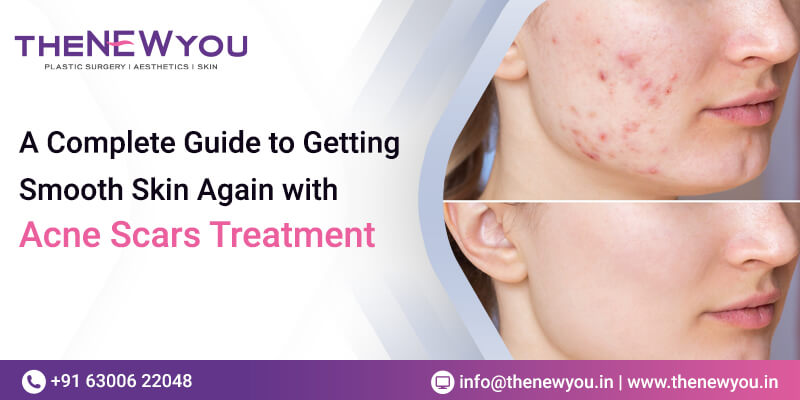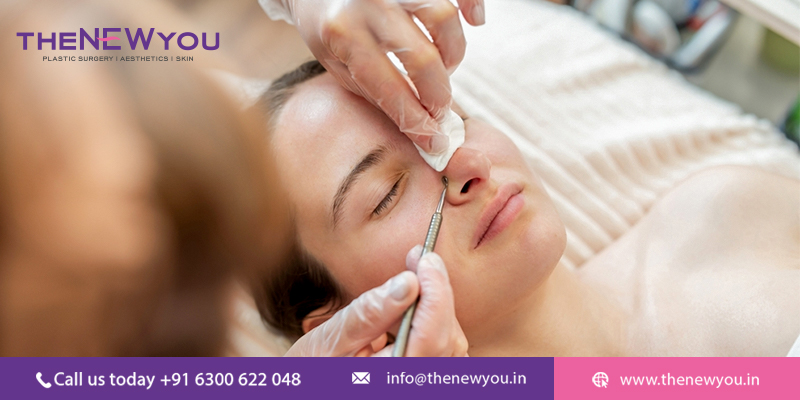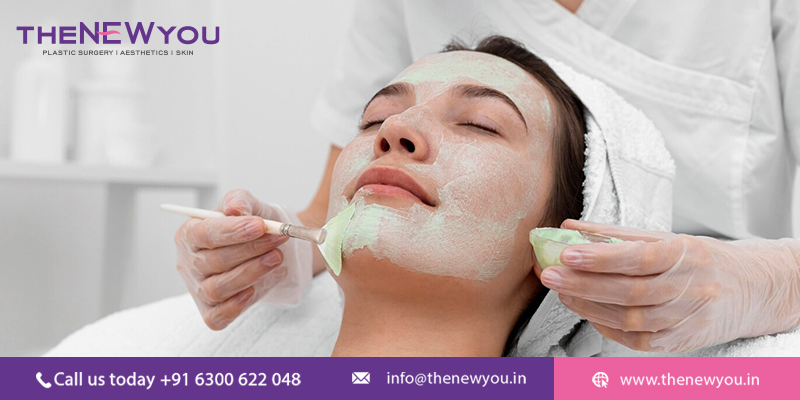Some people are privileged enough to have pimples that fade away without leaving a trace, but for others, having physical reminders of previous outbreaks can be incredibly upsetting. Even worse than acne itself, a scar that forms after a pimple might take weeks or months to diminish if it ever does. Because acne scars are so difficult to remove, no acne scar treatment is ideal for everyone. Depending on the type of scar, the kind of skin you have, and the degree of scarring, specific methods may help your skin seem better.
Causes of acne scars:
Whether you are over 40 and still struggling with adult acne or a teenager going through various hormonal fluctuations, acne scars can be one of the most challenging skin problems anybody can handle. To successfully apply a strategy to combat acne, it is necessary to understand the causes of acne. The leading causes of acne and acne scarring are listed below:
1.Hormonal changes:
Hormonal changes can impair the function of your skin at any stage of life, including adolescence and late adulthood. Acne and breakouts are easily caused by excess oil that results from pollution and other objects deposited in your pores.
2.Products that irritate:
After studying the irritating components often present in cosmetics, researchers concluded that perfumes and preservatives are the most irritating allergens frequently found in skincare products. The study’s findings also show that sunscreens, nail polish, and hair dyes are some skin-contact goods most likely to irritate.
3.Pollution:
Exposure to heat and dusty areas makes contaminants quickly enter your skin and cause outbreaks.
4.Poor exercise and diet:
There is proof that acne has underlying systemic causes. This is why anti-acne meals and recipes are excellent ways to alter the behavior of skin prone to acne. Exercise is a highly suggested adult acne treatment method since it enhances metabolism and aids in toxin removal.
5.Severe stress:
These two elements generally cause your body a lot of difficulties because you tend to ignore its circadian rhythm, which affects how properly your hormones are regulated and operate as your body switches, leading to inconsistencies in several organs, including your skin.
Treatments that help heal acne scars:
To make your skin smoother, you could require multiple types of treatments. Most occur at the hospital as an outpatient procedure or at the doctor’s office. They were resurfacing the skin. For new, healthy skin to emerge, removing the layers of damaged skin is necessary. Your doctor will advise one of the following best acne scar treatments:
1.Chemical peels:
A dermatologist can suggest a peel appropriate for a person’s skin type, acne severity, and scarring. A study that found that six out of ten patients who used a particular kind of chemical peel termed trichloroacetic acid (TCA) had a minimum of a 70% improvement in their acne scarring is mentioned by the authors of a review on therapies for acne scarring. Other chemical peels may be less efficient. For example, 25% of people who used glycolic acid reported no improvement in the visibility of scars. A person might need to experiment with many varieties to find the best peel for them.
2.Injections:
If a person develops hypertrophic or keloid scars, corticosteroid injections may help reduce and flatten elevated acne scar tissue. Several injections are often used as part of the treatment. Once every few weeks, a dermatologist can provide these injections in their office while monitoring the outcomes.
3.Micro-needling:
To encourage the body to produce more collagen, micro needling involves inserting tiny needles into the skin around the scar. Through skin smoothing, this collagen may lessen the visibility of atrophic acne scars. According to a review, micro-needling improved the look of atrophic or indented acne scars by 31-62%. According to a study, using collagen gel in addition to micro-needling produced results that were noticeably better than using micro-needling alone. Micro-needling, though, can have negative repercussions. Many people report redness, pain, and inflammation following the therapy. However, these advantages gradually wear off.
4.Laser treatment:
Skin resurfacing using a laser procedure is done without chemicals or washes. It reveals the younger skin cells beneath the outer layer, which can make scarring less noticeable. With its assistance, raised scars’ appearance and texture can be enhanced. Pulsed dye laser therapy can also be used to lessen the color of hyperpigmented scars. For those with pale skin, intense pulsed light laser treatment for acne scars can be preferable. Only some people are candidates for laser therapy. The type of acne scars and the person’s skin type will determine this. Some patients, especially those with sensitive skin, may experience an adverse reaction to the treatment.
Acne scar home treatment and prevention:
Acne scar treatment is something you can do at home. You can use over-the-counter bleaching solutions to lighten the affected region or sunscreen to prevent it from becoming darker if the scar changes your skin color. Take attentive care of your skin to reduce the likelihood of developing spots. Dermatologists recommend the following:
Avoid popping, picking, or squeezing your acne.
Make use of mild cleaners. Never scrub.
Scar creams, gels, or silicone bandages can hasten scar fading.
With black stains, over-the-counter bleaching solutions can be helpful.
Try to avoid standing directly under sun and use a lot of sunscreen
Final words:
In conclusion, people with acne scars frequently want to regain smooth skin. Fortunately, several efficient treatment alternatives can aid in lessening the visibility of these scars and improving the texture and tone of the skin. You can significantly enhance the state of your skin by implementing a thorough skincare program and medical treatments.
Establishing a regular skincare routine that involves gentle cleaning, exfoliating, and moisturizing is essential. Salicylic acid, retinoids, and vitamin C are just a few products you can use frequently to encourage skin renewal and lessen the appearance of scars. Additionally, it’s crucial to protect your skin from sun damage by using sunscreen every day because it can make acne scars appear worse.
Professional treatments can be pretty successful in healing acne scars when used in conjunction with a skincare regimen. Chemical peels, microdermabrasion, and laser therapy are dermatological procedures that can assist in resurfacing the skin, promote collagen synthesis, and lessen the visibility of scars. These treatments could need numerous sessions, so speaking with a dermatologist is essential to determine the best course of action for your situation.
Finally, even though acne scars can be upsetting, they are not necessarily permanent. You may reclaim smooth skin and increase your confidence with the correct skincare regimen, professional treatments, and professional coaching. Because every person has different skin, finding a treatment strategy that works for you is essential. Today, begin your road to better skin and welcome a revitalized feeling of self.
Frequently Asked Questions:
Treatments for acne scars can drastically reduce their appearance, but it’s crucial to remember that acne scars are difficult to completely and permanently remove. These procedures aim to lessen the appearance of scars, enhance skin texture, and encourage skin renewal.
Because they are the consequence of damage to the deeper skin layers, especially the dermis, acne scars are frequently thought of as permanent. The collagen and elastin fibers in the skin can become damaged when acne lesions, like pimples or cysts, appear.
In general, acne treatment is not painful. However, some methods or therapies used to cure acne or acne scars could be uncomfortable or mildly painful. The type of treatment, a person’s tolerance for pain, and the area being treated can all affect how uncomfortable they feel.








